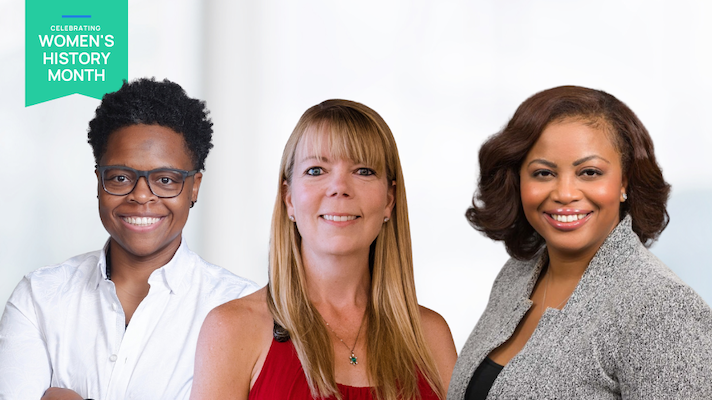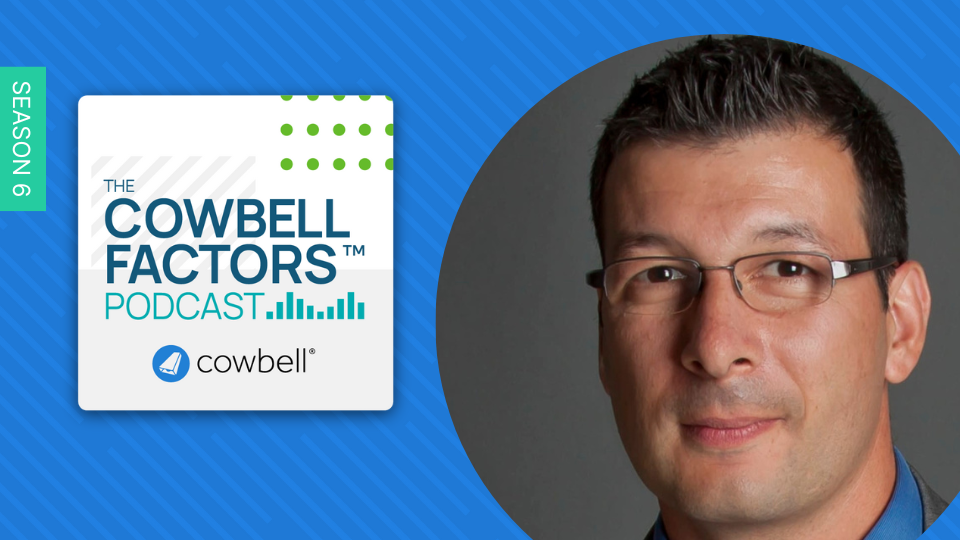The Cowbell Team is thrilled to have recently welcomed Kara Owens as the Chief Insurance Officer for Cowbell Cyber. But, she is technically not new to the company at all! Kara has been on Cowbell’s side as a mentor and Board Advisor, ever since we took our very first steps years ago. In last week’s episode, she shared with our listeners her journey within the insurance industry, the history and trajectory of cyber insurance, and a few of her passions: insurance (of course), diversity, equality, inclusion, and giving back to the community.
Kara experienced the development of cyber as an independent insurance line firsthand. In college, she majored in Risk Management and Insurance. She has spent her entire career in the insurance industry, witnessing how cyber evolved from a product that most carriers were not even offering, to an irreplaceable line of coverage for American businesses. Kara was still working for Markel as their Global Executive Underwriting Officer when she started advising Cowbell Cyber.
“I worked as a mentor for Cowbell when the company was still in its infancy, and working with Markel’s insuretech arm. Back then, it was just founder and CEO Jack Kudale as the only employee of Cowbell. Later on, Markel ended up becoming a capacity and reinsurance provider for Cowbell. So I worked with Cowbell all throughout, and ever since, my time at Markel.”
Given the early exposure to cyber insurance, Kara has a broad understanding of cyber as an independent line of insurance. She explains, “Cyber products started out in the late 1990s and developed out of a technology, and Errors & Omissions product. It was traditionally endorsed with very limited coverage, oftentimes sublimited.”
“When the internet became more prevalent and society started becoming more digitally connected, demand started increasing. Cyber started becoming more standalone, but only in certain industries and for larger companies.” Now, with businesses becoming more inter-connected and cloud-based, regulations surrounding cybersecurity and insurance are starting to develop further in each State (A year ago, the New York Department of Financial Services released its cyber insurance risk framework).
Since the beginning of the pandemic, the world has seen an enormous increase in cybercrime, and, therefore an increased demand of cyber insurance. But has the industry already reached maturity? “Cyber insurance has come a really long way. There is a lot more demand around cyber across the board and from different industries. But, given the evolving nature of cyber, I don’t think that it will ever reach maturity. It’s simply too dynamic. But I do think that it is in an interesting stage right now; it is almost like it’s reaching adulthood.”
However, with a new stage comes new challenges: “A big concern in the cyber insurance providing market right now is finding a balance between offering a good, in-demand product while not putting yourself at too much risk and potentially bankrupting yourself. To achieve this, a more seamless underwriting product is essential. This is something that Cowbell has been doing since the very beginning. Fifteen-page long application forms are not a proficient way to do cyber insurance. Technology needs to be utilized more to enable the broker, business, and insurance provider a fast and easy process throughout the policy lifecycle.”
Of course, the future of cyber insurance poses more challenges: “I am interested to see where we will be in our efforts of eradicating silent cyber. Will there be standard policies in the cyber market that also cover physical damage and bodily injury? On the other hand, I don’t think that we will ever be getting to an actual standard policy form, because the risk is always evolving, and insurance providers will always need a way to differentiate themselves.”
Another challenge that has become increasingly pressing, is driving the adoption of cyber insurance among small and mid-size enterprises (SMEs). “People are starting to realize that cyber incidents can happen to any company and that this can cause significant business interruptions, sometimes to the point of bankruptcy. Because of that, SMEs need to not only purchase cyber insurance but also need to take advantage of all the additional benefits that their policy offers. We’re here to protect policyholders, make them a better risk and try to prevent cyber incidents from happening in the first place. And even if they occur, we help mitigate the damage by having all necessary security measures and controls in place.”
Cowbell has been doing that since day one and ever since then, has massively expanded its value offerings to policyholders. “Cowbell is not only well aligned with the trajectory of the industry, but it is ahead of the curve, through our continuous monitoring capabilities, and using inside out as well as outside in data to create accurate risk assessment through the Cowbell Factors, for example.”
“We’re here to protect policyholders, make them a better risk and try to prevent cyber incidents from happening in the first place.”
“Another example of Cowbell’s innovative approach is the utilization of an AI [underwriting] platform, and the focus on loss control and its partner system, Cowbell Rx. Lastly, being able to spot claims trends and to use a huge amount of data are big advantages for any younger company while many more established companies are dealing with hurdles like legacy systems.”
If you are interested in hearing Kara discuss all this and more in greater detail, or if you want to learn more about her efforts and opinions surrounding DEI and ESG (environmental, social, and governance initiatives), listen to the podcast episode.
Visit the Cowbell Factor Podcast library to listen to last season’s episodes and stay up to date on upcoming ones. It is available on most podcast platforms (Spotify, Google podcast, Apple podcast, Anchor, Breaker, and Radio Public).




